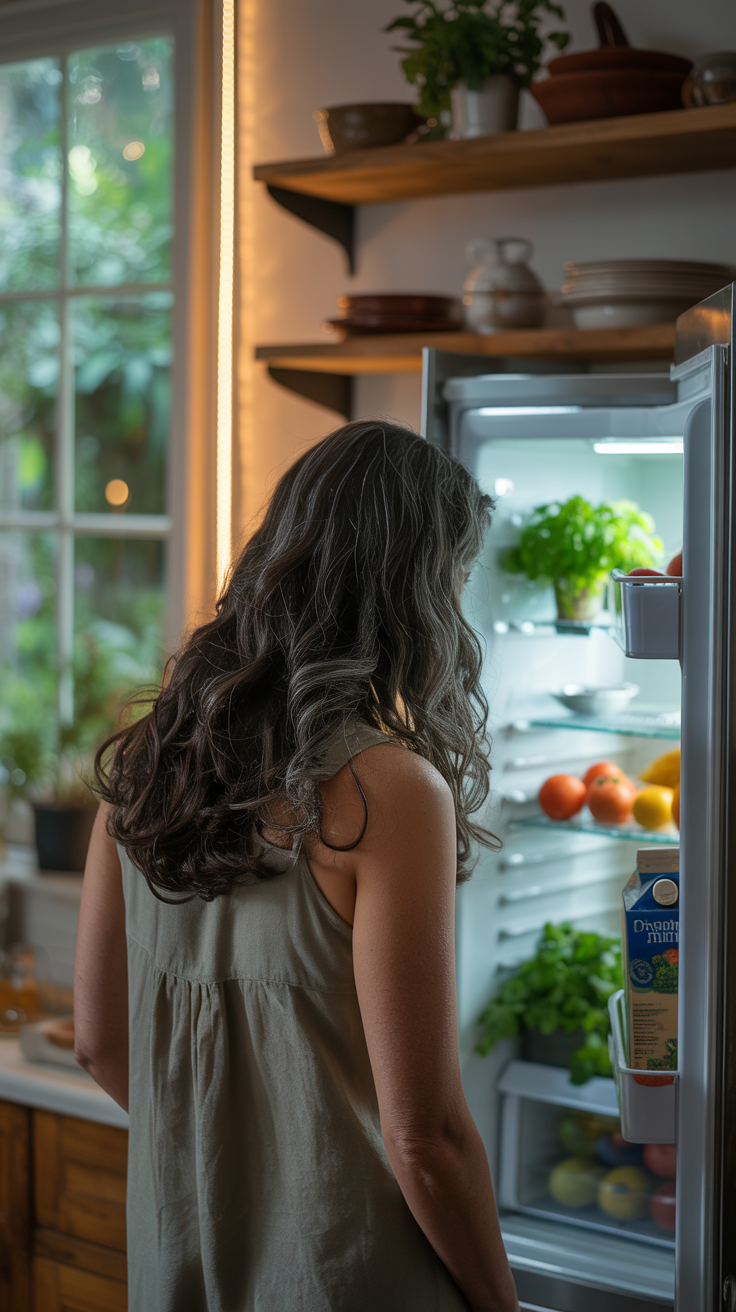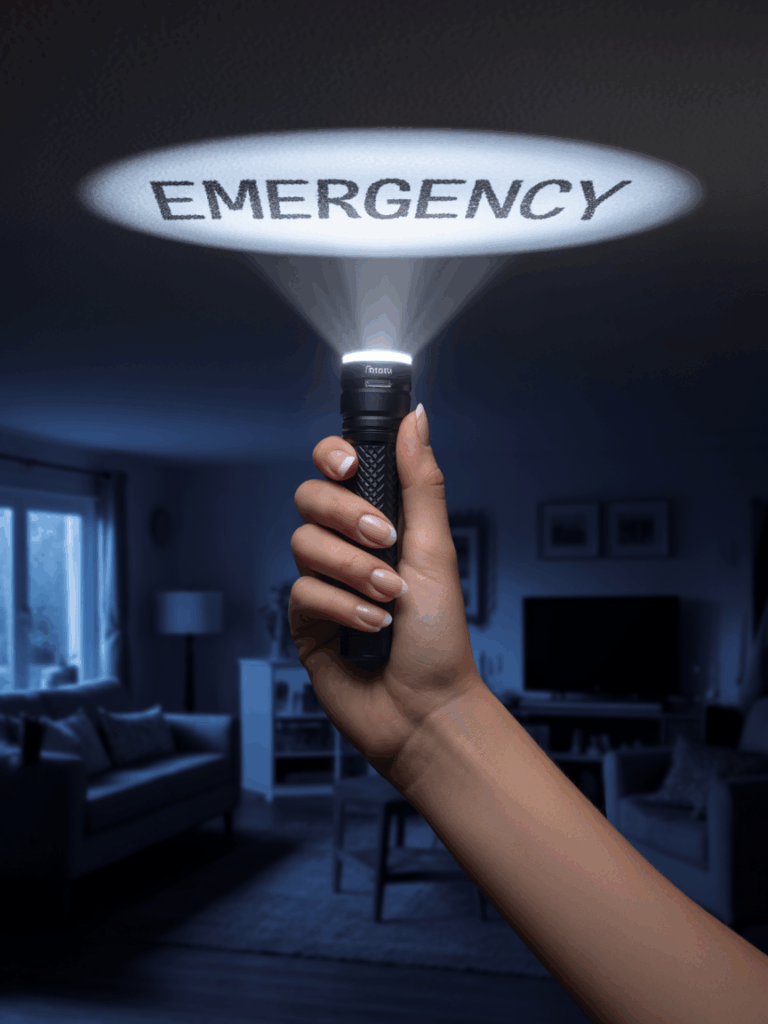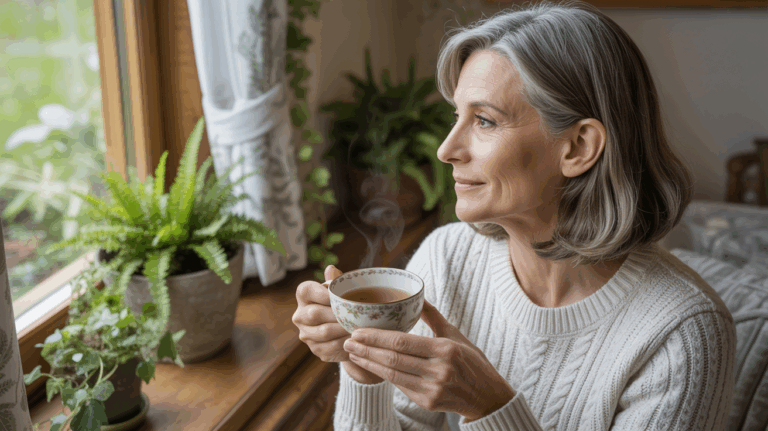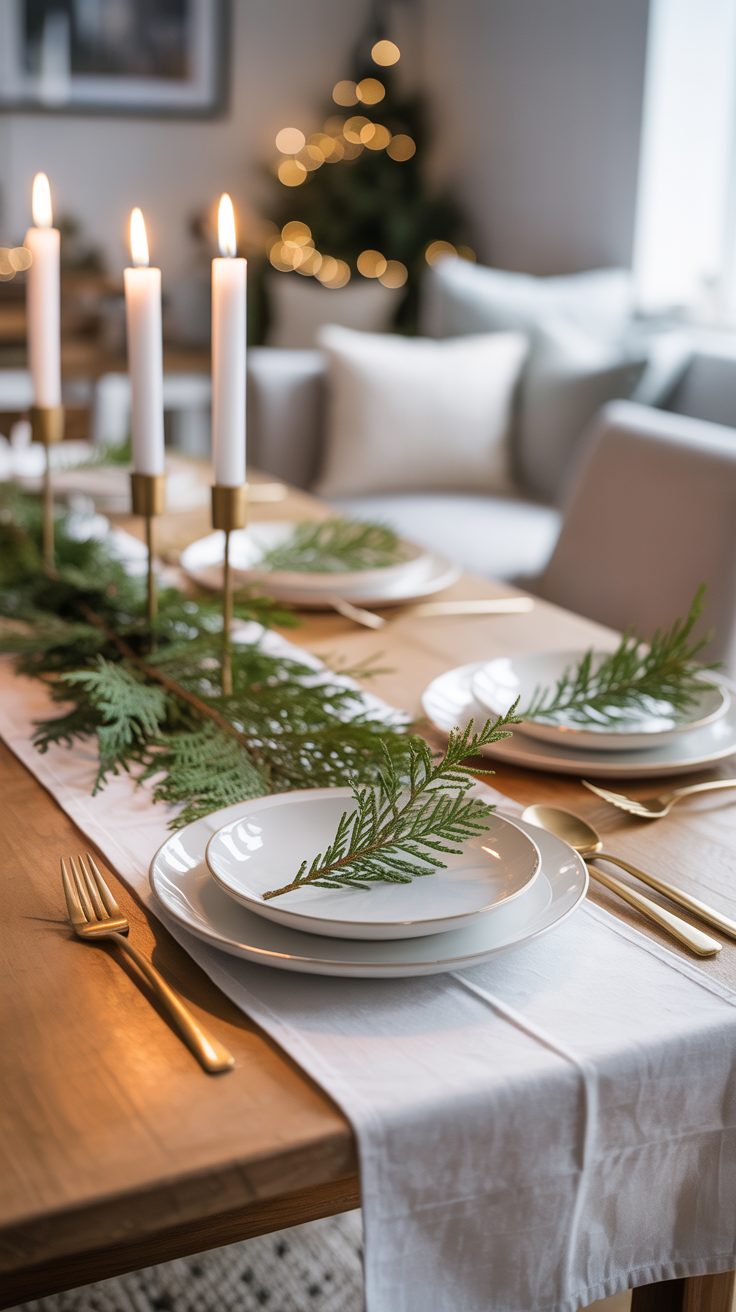Is Clutter Contributing to Your Feeling of Overwhelm?
Do the things around you seem to weigh on your spirit? If you’re a midlife woman finding yourself tense, reactive, or simply unable to rest at home, clutter may be silently stealing your peace.
Let’s gently explore how clutter affects your mind, amplifies stress, and what simple steps can guide you back toward calm.
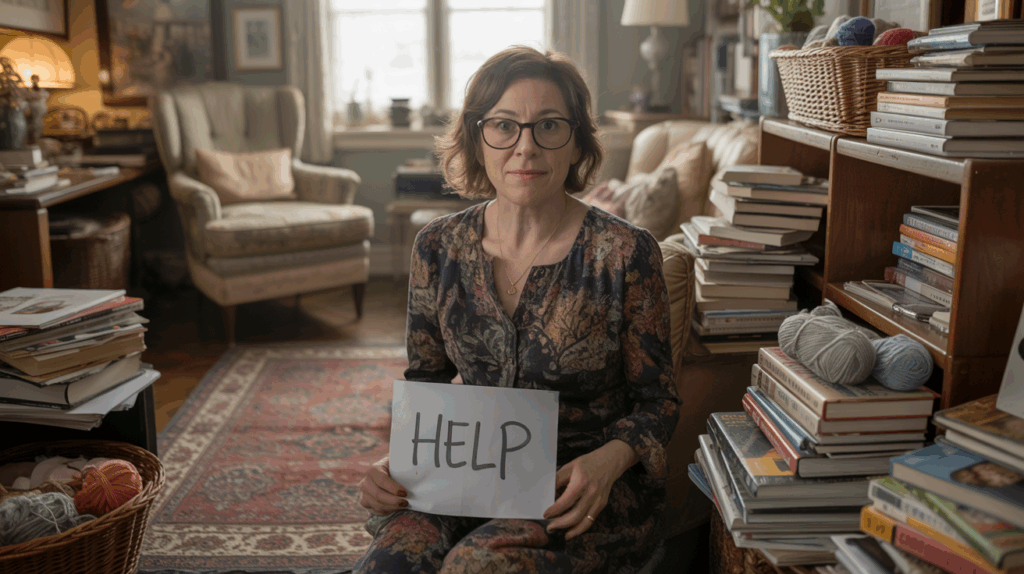
Why Clutter Can Trigger a Fight-or-Flight Response
Clutter is more than visual chaos—it can activate stress centers in your brain, keeping your system on edge, even when you’re resting.
- Elevated cortisol levels have been linked to cluttered surroundings. In fact, women—already juggling mental and emotional load—report higher cortisol throughout their day in cluttered homes compared to those in organized spaces. Psychology Today
- A broader study found 73% of people feel overwhelmed when their home is untidy and over 80% experience anxiety or stress connected to clutter. NABHSZipDo
- The sheer number of items matters too: the typical American home holds around 300,000 items, and 80% admit feeling stressed by clutter. ZipDo
That visual overload floods your senses, whispering reminders of tasks undone, decisions left hanging, and homes that feel unlivable. It isn’t just mess—it’s mental noise.
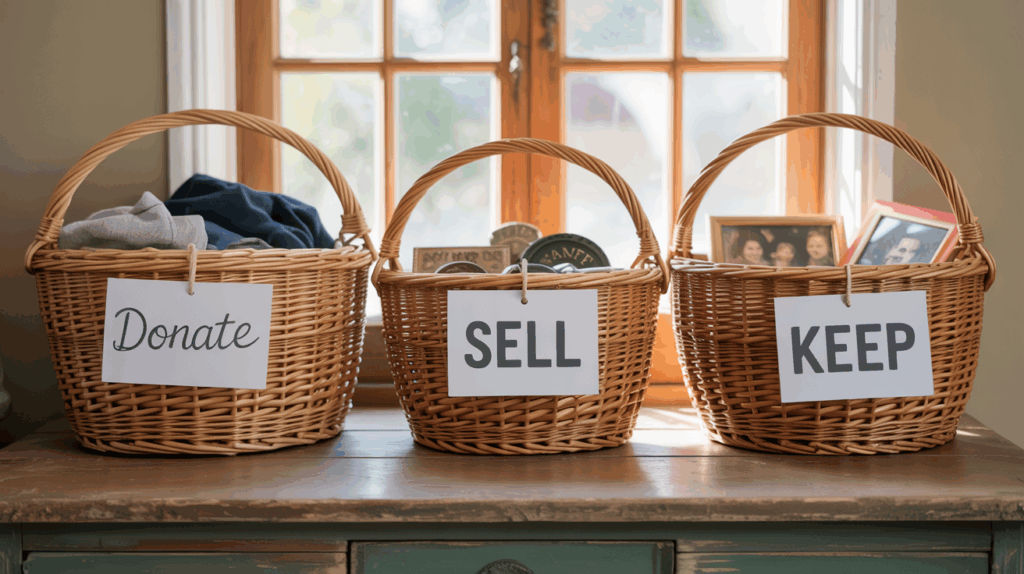
Clutter Feeds Overwhelm—and Often, the Emotional Load
Clutter isn’t neutral. When a space is disordered, your brain’s processing slows, focus falters, and emotional tension tightens.
- One study found visual clutter can reduce information processing and productivity by up to 30%. Reddit
- It’s not merely chaos—it taps into your emotional labor. Many women don’t just see clutter—they feel responsible for fixing it, layering on stress and guilt. Psychology Today
- And that constant knot of mental to-dos, desiring clarity while feeling stuck, is exhausting.
Many women describe feeling physically pinned by clutter—like a freeze response, where overwhelm shuts down motion and clarity. Reddit
3 Small Action Steps to Ease Clutter Overwhelm
Here are three gentle, doable steps you can take—tiny choices that build quiet momentum.
1. Start Small – Choose One ‘Clutter Zone’
- Pick an area that catches your eye without overwhelming—maybe a nightstand, a basket, or a countertop.
- Set a timer for 10–15 minutes and gently sort: keep, donate, or store. Just this small action can drop cortisol and lift a weight off your mind. caringtransitions.comHomes and Gardens
- Celebrate the calm—even a cleared surface becomes a visual sanctuary.
2. Create ‘Homes’ for Belongings
- When things have a clear place—like keys on a tray, mail in a basket, slippers by the door—you stop making decisions moment to moment.
- It frees mental space. Studies show when items have designated “homes,” clutter-related stress is reduced and your brain can rest. Real SimplePsychology Today
3. Practice Micro-Tidying as Self-Care
- Each day, spend just 5 minutes putting things back where they go—folding a blanket, clearing a chair, finding a lid for a mug.
- These little acts not only maintain order but nourish your nervous system. Regular micro-tidying creates peace over time. Grand Rising Behavioral HealthReal Simple
These small shifts are not about perfection—they’re about soft realignment. They send a message to your brain: “I can rest here.”
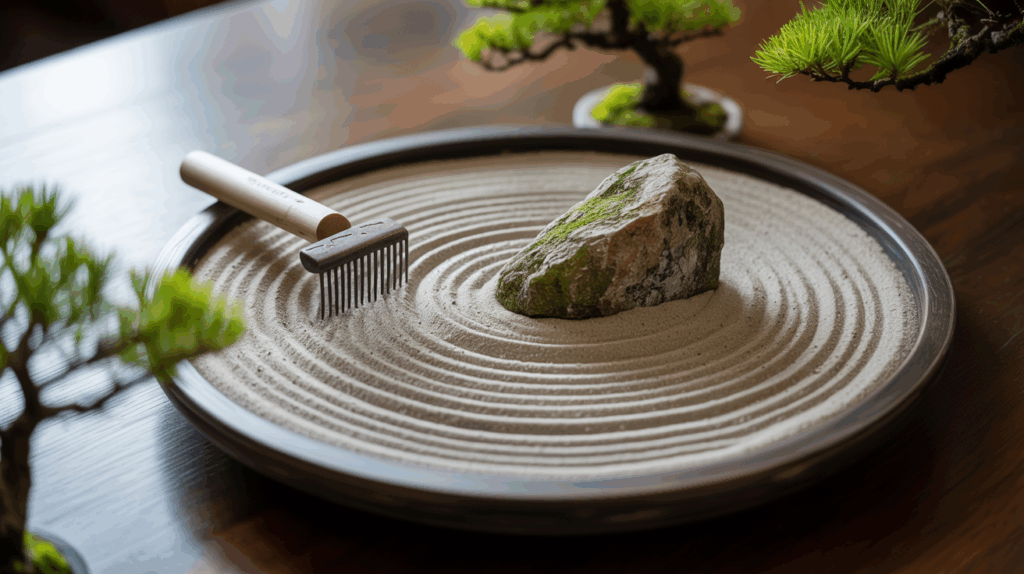
A Soft Invitation to Restore Calm
If clutter has become a daily whisper of stress, know this: you don’t have to tackle it all at once—or alone.
That’s why I created the Stillness Before the Shift Method, a slow, 90-day reset for midlife women navigating overwhelm of all kinds—mental, emotional, and physical.
- It’s not a ruthlessly tidy challenge—it’s about cultivating calm in your body and home.
- You’ll learn small daily practices, somatic tools, and rituals that allow spaciousness to grow—inside and out.
This season, you’re not only reclaiming your living space—you’re inviting your heart back to rest.
Clutter Doesn’t Have to Define You—or Your Day
Here’s a warm, gentle summary:
| What’s Happening | How It Feels | A Small Way Forward |
|---|---|---|
| Clutter bombarding your senses | Overwhelm, fatigue, decision fatigue | Start small—10 min on a surface |
| Mental load tied to mess | Anxiety, guilt, cognitive exhaustion | Assign “homes” for daily things |
| Persistent clutter habits | Freeze response, frustration | Micro-tidying as daily self-care |
Let these steps be breathers—not tasks. Begin softly. Love your home by loving yourself through it.
Your space doesn’t have to be perfect to be peaceful.
You Are Worth Calm, Clarity, and Comfort
If clutter has been whispering guilt—and anxiety—remember: it doesn’t define your worth.
You’re not messy, you’re human. You’re not behind—it’s just a season.
Start small, be kind, and trust that gentle boundaries with your belongings can create room for more breathing space in your life.
Let the quiet elegance of small habits transform not just your home, but how you feel inside it. You’re already on your way.

